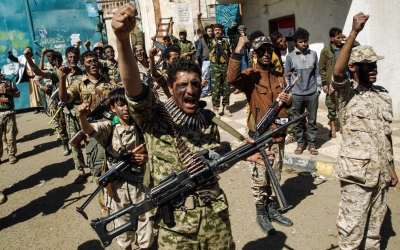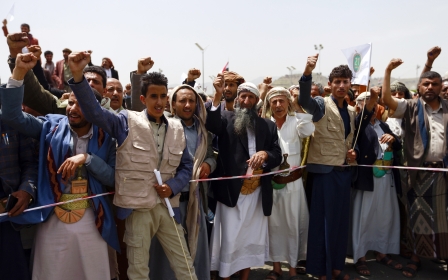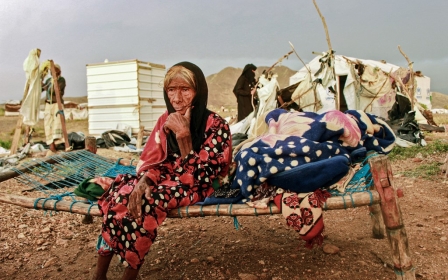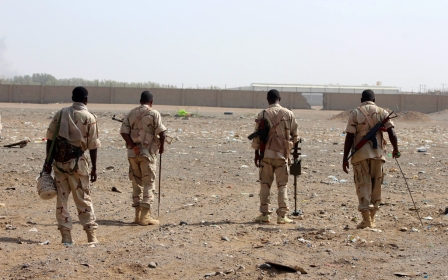Yemen's warring parties start massive prisoner swap
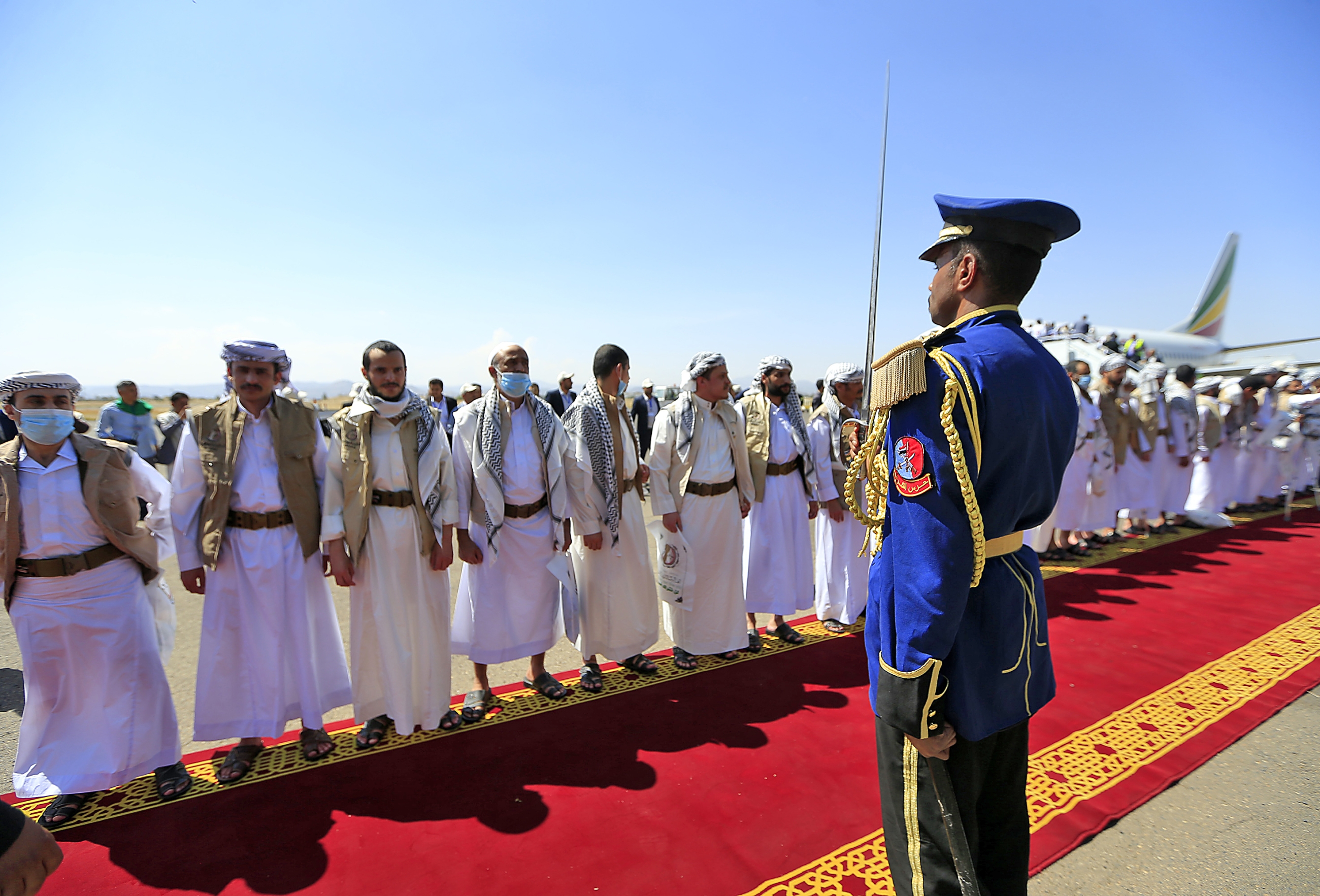
Hundreds of fighters in Yemen have begun heading home after a massive prisoner swap between the Saudi-backed government and Houthi rebels got under way on Thursday afternoon.
The two sides agreed to exchange 1,081 prisoners, including 15 Saudis, over two days under a deal struck in Switzerland last month - the largest number since the conflict began in 2014.
"The transaction will be executed, with God’s help, on the scheduled dates today and tomorrow," Abdel Kader Mortaza, the rebel official in charge of prisoner affairs, said on Twitter.
"The preparations have been completed by all parties," he added.
The International Committee of the Red Cross, which is overseeing the logistics of the complex two-day operation, said five planes had so far delivered more than 300 combatants to cities in Yemen and Saudi Arabia.
New MEE newsletter: Jerusalem Dispatch
Sign up to get the latest insights and analysis on Israel-Palestine, alongside Turkey Unpacked and other MEE newsletters
They travelled between Sanaa, the government-held city of Seiyun, and the Saudi city of Abha, it said.
'Today's release operation, led by the ICRC, is another sign that peaceful dialogue can deliver'
- Martin Griffiths, UN Special Envoy
In the rebel-held capital Sanaa, the returning fighters arrived to a red-carpet welcome, greeted by a military band and and senior officials standing together with family members.
An AFP correspondent watched the first planes depart from the capital.
One of them was headed for the city of Abha in neighbouring Saudi Arabia with released prisoners of war from the ranks of the coalition that supports the Yemeni government, rebel officials said.
Those on board included 15 Saudis and four Sudanese.
UN Yemen envoy Martin Griffiths, who attended last month's talks in Switzerland, hailed the successful start of the operation.
"Today's release operation, led by the ICRC, is another sign that peaceful dialogue can deliver," he said.
"I hope the parties will soon reconvene under UN auspices to discuss the release of all conflict-related prisoners and detainees."
The ICRC said its teams were stationed at the airports involved in the transfer, and had kitted out the detainees with clothes, hygiene supplies and money for their transport home.
"The ICRC has been conducting one-on-one interviews and medical checks with the detainees to be sure they want to be transported home and are healthy enough to do so," a spokeswoman said.
American prisoners released
The Yemeni government and the Iran-backed rebels resolved to swap some 15,000 detainees as part of a peace deal brokered by the UN in Sweden back in 2018.
The two sides have since undertaken sporadic prisoner exchanges, but this week's swap is the first large-scale handover since the war began.
The exchange comes after the release on Wednesday of two Americans held captive in Yemen, in an apparent swap for some 240 Houthi supporters who were allowed to return home after being stranded in neighbouring Oman.
The Wall Street Journal reported that Sandra Loli, a humanitarian worker who was held for three years, and Mikael Gidada, a businessman held for about a year, were released as part of the deal, according to Kash Patel, a deputy assistant to US President Donald Trump, who worked on the agreement.
In addition to the two Americans, the remains of a third, Bilal Fateen, were also being sent back to the United States. It was not known how long he was held by the Houthis or the circumstances surrounding his death.
"The United States welcomes the release today of US citizens Sandra Loli and Mikael Gidada from Houthi custody in Yemen," National Security Adviser Robert O'Brien said in a statement.
"We send our condolences to the family of Bilal Fateen, whose remains will be repatriated as well. We extend our sincerest thanks to Sultan Haitham bin Tariq of Oman and King Salman of Saudi Arabia for their efforts to secure the release of our citizens."
The fate of the 240 Yemenis, who had travelled to Oman for medical treatment in what was supposed to be a confidence-building move during the 2018 talks in Sweden, had become a major grievance for the rebels and a symbol of the deep distrust between the two sides.
Middle East Eye delivers independent and unrivalled coverage and analysis of the Middle East, North Africa and beyond. To learn more about republishing this content and the associated fees, please fill out this form. More about MEE can be found here.


